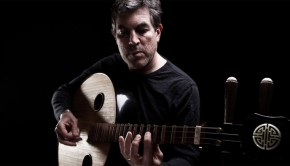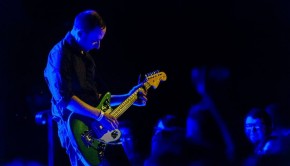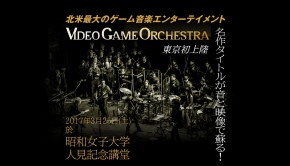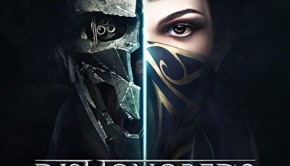Dan Licht Interview: A Darker Kind of Score
Daniel Licht has made a name for himself through his chilling music for the Showtime series Dexter, and has since moved on to score games in big-name series like Silent Hill and Dishonored. His music always pushes the boundaries of instrumentation, bringing influences from all corners of the world, and frequently improvising to create new sounds by using traditional instruments in unique ways.
In this interview, Licht discusses his compositional influences and methods, and his journey across the different venues of modern-day scoring. While Licht is perhaps most well-known for his eerie motifs, he provides valuable insight on the opportunities and challenges in his work, from his particular brand of instrument to his meticulous use of ambiance in scores.
Interview Credits
Interview Subject: Daniel Licht
Interviewer: Emily McMillan
Editor: Emily McMillan
Coordination: Chris Greening, Andrew Cohen
Interview Content
Emily: Thank you so much for sitting down with us! I was very excited when I heard you were interested in speaking with us, as I was a huge fan of the Dexter soundtrack while the show was running.
Licht: Well cool, thank you!
Emily: First off, I wanted to ask about your musical influences; you talk a lot about coming from a jazz and rock background, instead of a classical background, which I thought was pretty interesting.
Licht: Yeah, I have a pretty eclectic background; at an early age I started in rock, and got into jazz, but I’ve also studied and appreciated classical music since the age of seventeen or so, and I studied world music – I’ve traveled to Indonesia and studied gamelan, played in New York City so I like to consider myself pretty eclectic.
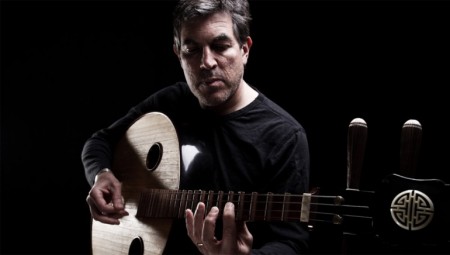
Emily: Tell me some more about the gamelan groups!
Licht: Right, I played with the Indonesian Consulate Orchestra in New York City, and I also played with Barbara Bernary’s Son of Lion a new music gamelan group that started at Downtown New York kind of, avant-garde experimental gamelan music. My parents lived in Indonesia so I used to come and visit and then go off for two or three weeks to study music for a little while. It’s actually a very useful kind of music to know for scoring films, because its pattern-based and very ostinato-oriented, so sometimes I’ve even used rhythmic patterns that I’ve learned in gamelans for a suspense kind of background. It’s absolutely an influence in my scoring.
Emily: I noticed that you love in your scores to add plucked strings, which could also lend themselves to those ostinato-type scores you’re talking about. You have a lot of acoustic guitar, electric guitar, even mandolin…
Licht: Well I have a lot of these instruments that I play. I’ve got a bunch of instruments in my studio that I’ve collected from around the world – mandolins, Chinese pipas, and all kinds of stuff that I like to use to add new colors. I can play them live, and I keep a microphone set up to my writing desk that I use while writing a score.
Emily: So do those recordings ever make their way into your scores?
Licht: Oh sure, absolutely. I’m usually working at the computer and on a keyboard, and I’ll have a little piece of paper in front of me for sketches while I’m trying to figure out a harmony and some rhythm work. If I’m writing for guitar, I’ll generally write it with a guitar on my lap, because that generally makes more sense. Generally I’m working at the keyboard when I’m composing, though.
Emily: Do you have as an extensive history with keyboard as you do with guitars?
Licht: Not really – I mean, I’ve played keyboard for a good 25 years now, but I’ve had very few real lessons in keyboard, just a few things my friends have showed me. (laughs) But I’m definitely not a trained pianist. You know, it’s easier to play harmonies and melodies on the keyboard. You can play a lot of guitar, but if you want to do a bassline and a melody line, it’s not quite as simple. Generally, you can play more complex music on a keyboard than on a guitar. You have two hands playing! You’re fingering with one and plucking with the other, which gives you more possibilities. Guitar’s more expressive as a percussive instrument; you got your hands right on the strings, so you’re able to bend or do more expressive things. But as a compositional aide, you do get more out of a piano than you would from a guitar.
Emily: You do seem to use a lot of experimental instruments as well, different objects – I was reading about your work in this with the Dexter scores. Have you done a lot of this with your games like Silent Hill and Dishonored?
Licht: Oh sure, absolutely. Silent Hill was more of an electronic score, so I did a lot of sound design for that. A lot of creative energy went into creating the sounds that would work in that universe. But I’m always trying to make a unique sound for each project. It makes your life a lot easier to find the world you’re working it – knowing what you’re working with, it makes it easier to start.
Emily: I read that you like to start with figuring out your sound palette before you writing, therefore figuring out your boundaries for the score.
Licht: I tend to want to figure that out, yeah.
Emily: Does it ever change as you’re going?
Licht: All the time! At a certain time I may be trying to get a certain picture and just realize, that’s never going to work. Or I’ll get into a pattern and realize that my conception was really wrong from the start.
Emily: You seem to be drawn to the darker scores – I know this isn’t the first time you’ve heard this. One of your earliest scores was for Hellraiser, based on the Clive Barker novel, and he’s very well known for being a darker writer and filmmaker. Was there any one point you realized that this was the mood you enjoyed writing for, or has it all just been a kind of accidental series of events?
Licht: Well, I mean I kind of got brought into this business with Chris Young, who’s a friend of mine. I was in New York City doing some commercials and indie films, and Chris was out here making a name for himself, and when I came out to visit, I realized that this was what I was really interested in doing, being out here and working in film. Chris recommended me for my first film out here, and it was a vampire film. It was kind of a comedy/horror, and once you get down that path, that’s kind of what you get known as. And experimental music, and it kind of worked for what I did – creating sounds. When I was New York City, I would play with guitars and balance frying pans, and I was really into creating really strange sounds, and it kind of worked, and it was a good venue for me to experiment with horror films. So that’s really how I got into that. I guess it was what I was good at.
Emily: Do you ever find it difficult to create new sounds with different games or films or tv scores because they often have similar atmospheres?
Licht: No, it’s always possible to shuffle things around and try to add new things. It’s always good to think of something different, and to try and think of a new way to approach something. Different instruments, ones that haven’t been used a whole lot for specific genres. So if I got a horror film and I decided to feature bassoon, that would be kind of interesting – so maybe the listener is thinking, wow, a bassoon for horror music! For Dexter, I was trying to capture some of the humorous elements in it. So what I did was started to use some of the typical comedy instruments, but in a gothic way. So that was a kind of lighter part of Dexter. That’s where a lot of plucky stuff came from.
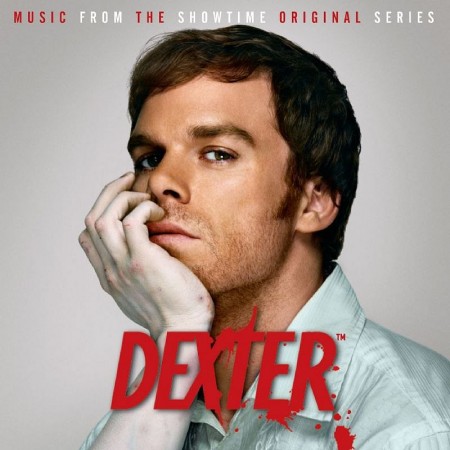
Emily: I saw on YouTube a recording of the orchestral arrangement you did of Dexter this summer in Krakow. That was very interesting to watch – there were a lot of instrumental techniques I was trying to figure out while watching. There was one instrument I noticed – one man who was bowing what looked like some kind of marimba or vibraphone.
Licht: Oh, that was the vibraphone. It was me and Norman Kim – we were both bowing a vibraphone at the same time.
Emily: It’s fun to watch! It creates this really cool effect that’s kind of alien and creepy and foreign but also fascinating at the same time.
Licht: Well, one of the things I do at the concerts is emphasize different techniques of playing instruments because it tends to involve the audience a little more. They start to get curious about it. A lot of people put on film music concerts where they show film clips while the music is playing. I actually doing like doing that at the concerts, because I think the audience stops listening and they start looking. When I do my live concerts, I don’t show video clips. Even in the Polish concert, they wanted to put in a lot more video clips, and I was like, no no no!
Emily: So you had to specifically ask for that to not happen!
Licht: Yeah, I mean some of the composers had video clips from the beginning of their piece to the end, but I didn’t want to do that. I want to make the audience think a little bit about how the music is made, and I want to incorporate new techniques. So in that concert, I was playing a meat cleaver and a knife – and then other people were playing scissors and saws and duct tape – but I draw the line somewhere. I draw the line at gimmicky – I don’t want to be gimmicky. Somewhere before Blue Man Group.
Emily: You’re aiming for somewhere between Blue Man Group and the rest of the composers at live concerts.
Licht: Exactly!
Emily: One interesting thing I’ve heard you talk about a few times is the concept of ambiance in film scores, game scores, all that stuff, and you talk about what makes good ambiance, or ambiance people want to listen to. You mention that it’s a lot more difficult than people think to make an ambiance that is really impactful.
Licht: Ambient scores are more difficult than one might think because – it’s like having a sail boat where the sails aren’t attached to anything. You’re herding butterflies – it’s just so ephemeral that you need to know just the right amount of elements to put into something before it becomes overbearing or too busy, and it’s no longer ambient, or you put in too many sound effects and you no longer hear anything. So it has a whole list of concerns as opposed to when you’re just writing music, and the music is going to appear as notes and rhythms and sounds – and you’re not worried about it being obliterated by something like a fan sound or something.
Emily: In Dishonored, you said that your score was written to be more creepy and ambient than Silent Hill, and when I hear something like that I tend to instinctively back away from it. But I really enjoyed listening Dishonored score – it was very engaging, both in and out of that game.
Licht: Well, thank you. That’s the job with ambience, to make it interesting as music.
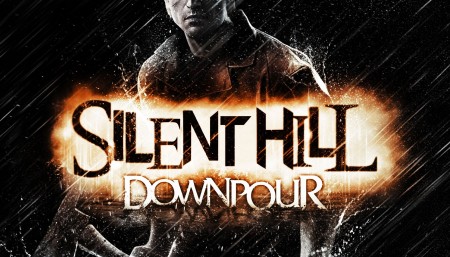
Emily: That one violin that kept coming up – so there was enough solo instrumentation in the music to keep it going.
Licht: Dishonored was also written in 20-second bits, too. So I tried to do 20-second bits that made sense musically, that when you put them together it became a phrase, and phrases that made sense. But anyway, Dishonored is a challenge too because they want an immersive experience for the player, so they don’t want people scoring things too much, you know? They don’t want the game to be self-conscious at all. Like they try and minimize the cutscenes in Dishonored, so mostly you’re playing things and things happen – it’s a world you go into and experiment with.
Emily: So in that sense, scoring it is different from Silent Hill, even though it has that same unsettling vibe to it.
Licht: Yeah, Silent Hill was very different, even though it did have some ambience to it. The music has much more of a presence in the game when it’s there.
Emily: As someone who writes for several different genres – film, tv, game – have you noticed trends in scoring that encompass more than one of those genres? I saw you talk about what you called the rise of “Nordic” music in different scores – is this across multiple genres or just in one or two?
Licht: Well, I saw with television, there are two trends – one is this sort of cold, almost ambience, it doesn’t really point at anything, but just creates mood. On the other hand, you’ve got period pieces scored with rock where the music is calling out for attention, and is another element in the show. Games are becoming more cinematic than anything. You have games where there are full orchestras and choirs, and games like Dishonored where we just want to create a world that doesn’t shout out at you. Games are going in different directions. Films are becoming more of one sound, really – it’s the Hans Zimmer sound, just that big sound, and the films are gravitating towards that. You also have film composers coming into the game and television world.
Emily: It seems like there’s been a recent trend of composers taking on more than one genre at a time, so a popular film composer now might also compose for a game or tv show.
Licht: Well, it used to be that if you were a film composer, you would not dare to be caught scoring for a television program. But then television became hip, and you have people like David Fincher, film directors doing television shows. So then of course you’re going to have film composers – or their agents – that want their clients to be the new composer, doing this show, so of course they’re going to try and do their show. That’s probably mostly the agents pushing in that direction, you know.
Emily: So, exciting news – from the recent announcement over the summer, you will be scoring Dishonored 2 when it comes out next year!
Licht: Yep!
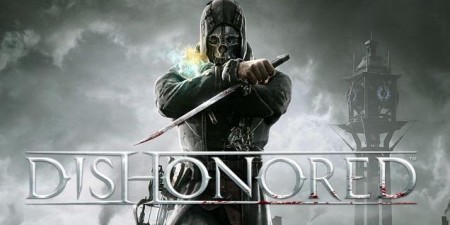
Emily: How has it been for you since that announcement went public?
Licht: Sure! (laughs) I mean I’ve been working on it all along. It’s the thing with games, you’re always in the middle of something, frequently almost done, by the time it’s announcement. So that does kind of dull the excitement. (laughs)
Emily: When you get something like this, are you thinking about new directions for the score, or are you mentally going back to the old score and vamping it up?
Licht: Well, I’m going back to the first score, and I’m thinking about new instruments and new sounds that I can put into the score. The nature of the new Dishonored – well, everyone’s seen the trailer- it’s a little more Mediterranean than the original, so I’m incorporating new instruments like bouzoukis while staying very close to the original. It has less of a dark, smoggy, London feel than the first one. You even have a female lead in this trailer, which is an option to the player.
Emily: How far are you?
Licht: I would say two thirds – let’s say three fifths! – finished. (laughs)
Emily: Is there anything else you’d like to say to your fans?
Licht: Thank you for paying attention! I’m hoping to bring some new and interesting music to you for Dishonored 2.
Posted on September 28, 2015 by Emily McMillan. Last modified on November 7, 2015.

